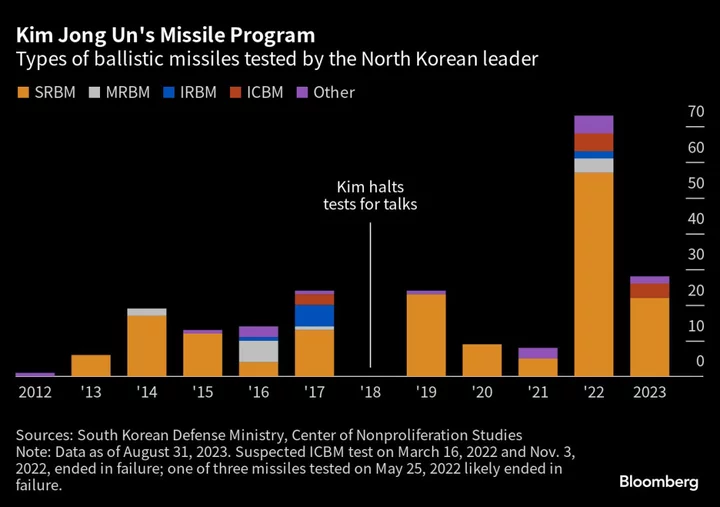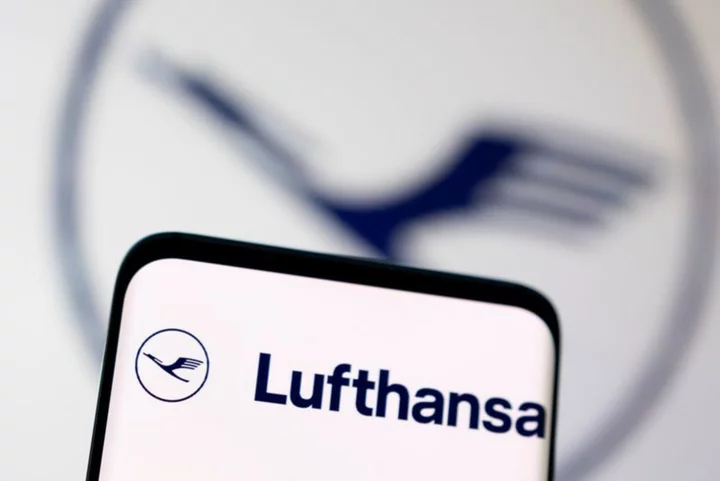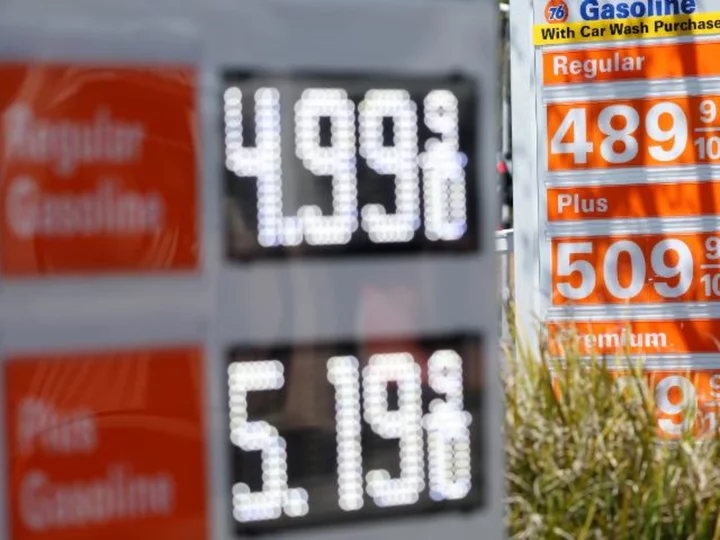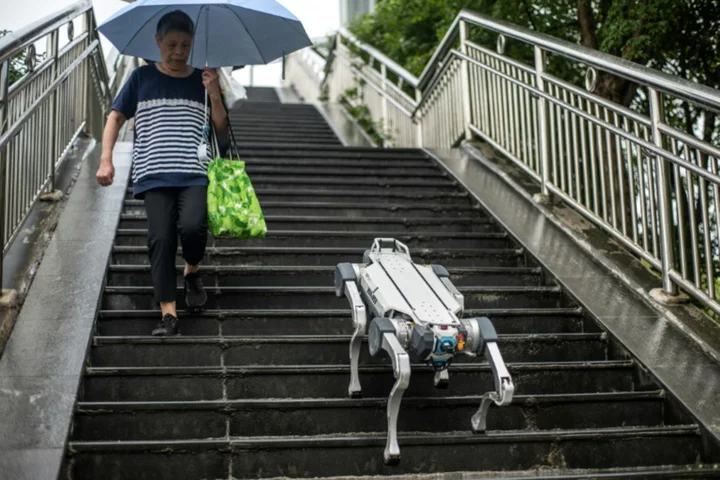North Korea fired several cruise missiles on Saturday, Yonhap said, just days after it shot off a pair of nuclear-capable rockets in a show of anger against US-South Korea joint military drills.
Several missiles were launched toward the Yellow Sea, Yonhap reported, citing South Korea’s military.
North Korea on Aug. 30 test-fired two suspected short-range ballistic missiles for simulated nuclear strikes, saying it wouldn’t bow down to threats after the US sent a B-1B strategic bomber to airspace off the peninsula for military drills with South Korea.
Read: North Korea Holds ‘Scorched Earth’ Missile Test to Defy US
North Korea has bristled at joint drills for decades, calling them a prelude to an invasion and nuclear war.
Pyongyang had already fired 26 ballistic missiles and two space rockets so far this year. They included four intercontinental ballistic missiles that could hit the US mainland. Kim’s regime launched more than 70 ballistic missiles last year, a record for the state.
Kim has ignored US calls to return to long-stalled nuclear disarmament talks. But he has been busy modernizing his arsenal of missiles and conducting tests of systems to attack South Korea and Japan, which host the bulk of US military personnel in the region.
North Korea launched two short-range ballistic missiles into waters off its east coast on July 19 after the USS Kentucky stopped in Busan, in the first visit to a port in South Korea in about four decades by a submarine capable of firing nuclear ballistic missiles. Pyongyang fired two more a few days later when another nuclear-powered US sub arrived at a separate South Korean port to replenish supplies.
Those launches came after North Korea in July tested its Hwasong-18 solid-fuel ICBM. It flew longer than any of its other ICBMs and appeared designed to carry a multiple nuclear weapons payload, which increases the chances that at least one bomb could slip past interceptors and make its way to a target.
A solid-fuel missile could be deployed quickly and fired with little warning. Liquid-fuel missiles in general take more time to prepare as propellant is added to their tanks, making them vulnerable to attack before taking off.









